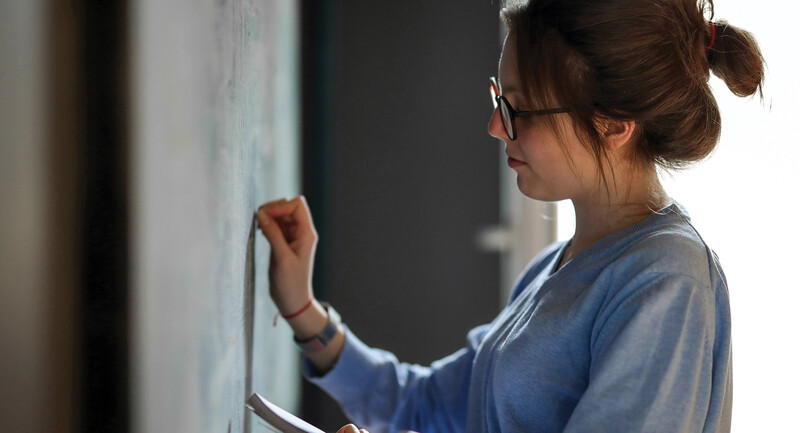Today's students are passionate about their communities and their future, and they have a unique perspective on how high-level decisions affect the day-to-day life of the school. These insights are vital as we create an education system that will empower future generations to tackle some of the biggest challenges facing American society, such as inequity of opportunity, violence (including school shootings), and increasing divisiveness in our communities and our political life.
Just as importantly, when students are engaged authentically, they feel ownership over their learning, which is a crucial step toward ensuring that all students experience a sense of agency—the ability to make choices and take actions that affect one's own trajectory and influence the wider world.
Yet, too often, we do not listen to youth. We fail to engage them as leaders, problem solvers, and decision makers. It's only by including them in the conversation that we can create an education system that remains the best hope for equipping them to face the challenges of this century.
Surveying Students About Their School Experience
In recognition of the importance of youth voice, CASEL collaborated with Civic and Hart Research & Associates, sponsored by The Allstate Foundation, to survey 1,300 current and recent high school students. Respected: Perspectives of Youth on High School & Social and Emotional Learning (Nov. 2018) explores how students view their school experience, their greatest challenges, how well they feel prepared for life after high school, and how schools could improve.
In this survey, we used CASEL's definition of social and emotional learning (SEL) to describe an "SEL School." In an "SEL School," educators help students learn how to get along and work with those different from themselves; feel confident; understand other other's feelings and points of view; positively solve disagreements; understand their own emotions; deal with difficult situations; and deal with stress. These characteristics align with the five SEL competencies, which serve as the building blocks of CASEL's framework for systemic SEL.
We then asked current and recent high school students for their opinion about how attending an SEL school would affect various areas of their education experience.
A majority of current students and recent graduates believe going to an SEL high school would help / would have helped
- Improve teacher-student relationships (72 percent current students, 68 percent recent graduates)
- Improve relationships with friends/other students (67 percent current students, 71 percent recent graduates)
- Reduce bullying (63 percent current students, 64 percent recent graduates)
- Learn academic material (69 percent current students, 64 percent recent graduates)
- Prepare for college (76 percent current students, 69 percent recent graduates)
- Learn real-world skills for after high school (74 percent current students, 70 percent recent graduates)
- Prepare for jobs/careers (73 percent current students, 67 percent recent graduates)
- Prepare for giving back to the community (66 percent current students, 64 percent recent graduates)
As these results show, students feel that an SEL school has the capacity to affect their interpersonal relationships, their academic performance, and their preparation for future success in college, careers, and communities.
Students Rate Schools on SEL
We also asked student how they felt about how successful their schools had been at providing support with social emotional learning. The results are telling: fewer than half of young adults believe their school did a good job helping them develop key SEL skills (see below). Current students have a more generous view, but very few say their school did a "great" job.
- Knowing how to get along/work with people different than you (19 percent current students, 17 percent recent graduates)
- Feeling confident in yourself (21 percent current students, 16 percent recent graduates)
- Understanding other people's feelings/views (17 percent current students, 15 percent recent graduates)
- Knowing how to solve disagreements in a positive way (16 percent current students, 15 percent recent graduates)
- Understanding your own emotions and why you feel different emotions (13 percent current students, 14 percent recent graduates)
- Dealing with difficult situations in your life (12 percent current students, 12 percent recent graduates)
- Knowing how to deal with stress (12 percent current students, 11 percent recent graduates)
Putting the Research into Practice
This report is a wake-up call to leaders, educators, and the general public. It's clear that students value and crave schools that support SEL. In the SEL-friendly classroom, educators not only teach SEL explicitly, but also integrate it into classroom instruction and academic curriculum. SEL is also integrated into the larger school community, informing administrative policies and practices, school climate, family-teacher interactions, and out-of-school time. The CASEL Guide to Schoolwide SEL provides a process for integrating SEL into the "way things are done" in schools so that it has the greatest impact on students. The result is a school community in which SEL is infused into every part of each student's experience.
A growing body of research documents the many benefits: SEL strengthens academic performance, improves student behaviors, and helps students become more engaged, more caring, and more contributing members of society. Students value these skills. And as research by CASEL and others shows, so do huge majorities of adults—teachers, principals, parents, employers, and the general public.
This growing demand is why SEL is the fastest-growing and most powerful education movement in the country. If we answer students' call for deeper and more meaningful systemic SEL, we show we are listening, and that we're committed to providing what they need to face challenges, fulfill their potential, and thrive into adulthood.







